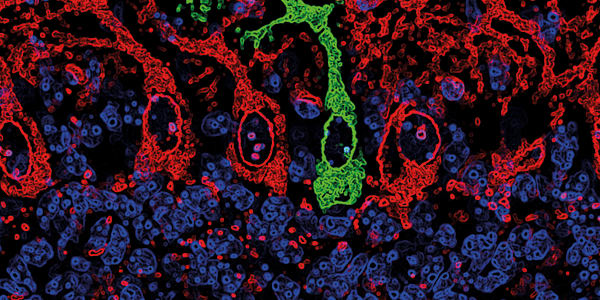Neurofilament light chain (NfL) – a previously identified potential biomarker of neurodegeneration – could be an early indicator of Alzheimer's disease. A new study, carried out by a team from Harvard Medical School and Massachusetts General Hospital, set out to determine NfL’s efficacy as a biomarker for Alzheimer’s and the earliest age at which plasma NfL levels distinguish individuals at high risk of the disease.
The PSEN1 E280A mutation is the most common cause of familial Alzheimer’s disease, affecting predominantly a large kindred from the Colombian state of Antioquia (1). People from Antioquia are common participants in longitudinal studies on biomarkers for Alzheimer’s. This study included over 2,000 members of the group aged between eight and 75 with no other neurological or health conditions; 1,070 were PSEN1 E280A carriers and 1,074 were non-carriers.
Using an ultra-sensitive single-molecule array immunoassay, the team measured NfL concentrations in both serum and plasma, which are closely aligned in those with neurodegenerative diseases. They discovered that NfL levels increased with age in both groups and began to differentiate between PSEN1 E280A mutation carriers and non-carriers at age 22 – an average of 22 years before the estimated age of onset of cognitive impairment (2).
“Our findings add to the growing evidence that blood-based NfL can be useful in detecting neurodegeneration, starting with very early, subtle elevations way before the onset of clinical symptoms,” said Yakeel Quiroz, Assistant Professor at Harvard Medical School, in a recent press release (3). “We need more studies to further explore NfL as a way to inform prognosis and evaluate treatments in Alzheimer's disease.” The research highlights plasma NfL as a promising biomarker of active neurodegeneration when screening for Alzheimer's disease and evaluating disease-modifying therapies.

References
- Alzforum (2020). Available at: https://bit.ly/3hq2KTz.
- YT Quiroz at el., Lancet Neurol, 19, 513 (2020). PMID: 32470423.
- Massachusetts General Hospital (2020). Available at: https://bit.ly/39jEkbA.




